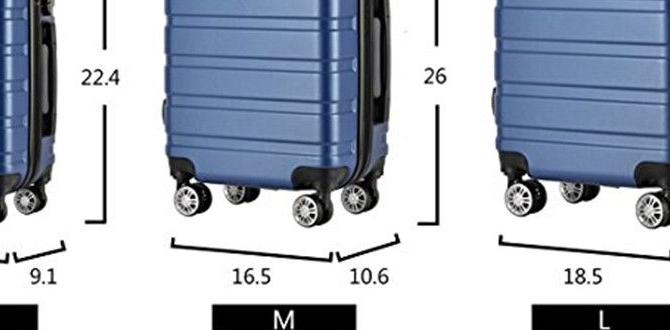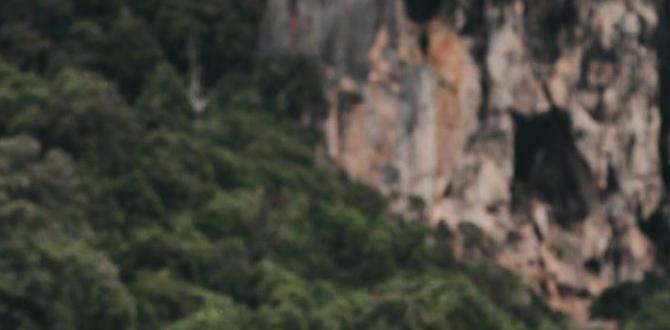Planning a trip to Accra, Ghana, should be exciting, not overwhelming. This guide simplifies your Accra journey, offering a balanced, beginner-friendly one-week itinerary packed with culture, history, and fun. We’ll cover essential tips, top attractions, delicious food spots, and practical advice to ensure a comfortable and memorable visit. Get ready to explore Accra with confidence!
Accra, Ghana’s vibrant capital, pulses with life, a captivating blend of ancient traditions and modern energy. For first-time visitors, mapping out a week can seem a bit daunting. But don’t worry! This guide is designed to make your Accra adventure smooth and enjoyable. We’ll help you navigate the city’s rich history, bustling markets, and stunning coastlines without a hitch. Get ready for an unforgettable experience as we unveil Accra’s treasures, making your trip easy and memorable, from start to finish.
Why Accra for Your One Week Itinerary?
Accra offers a unique and enriching travel experience. It’s a city where history whispers from colonial-era architecture, lively markets brim with local crafts, and the spirit of Ghanaian hospitality shines brightly. If you’re looking for a destination that’s culturally immersive, historically significant, and offers a warm welcome, Accra is an excellent choice. It provides a fantastic introduction to West African culture, making it an ideal spot for a one-week exploration.
Preparing for Your Accra Adventure
Before you even pack your bags, a little preparation goes a long way to ensure a seamless trip. Thinking ahead about the essentials means more time for enjoyment once you arrive.
Essential Documents & Visas
Passport: Ensure your passport has at least six months of validity remaining beyond your intended stay.
Visa: Most nationalities require a visa to enter Ghana. Check the requirements for your specific country well in advance with the Embassy of Ghana in your home country.
Yellow Fever Vaccination: A Yellow Fever certificate is mandatory for entry into Ghana. Get vaccinated at least 10 days before travel.
Travel Insurance: Always a wise decision for any trip, covering medical emergencies, trip cancellations, and lost luggage.
Health & Safety
Accra is generally safe for tourists, but it’s always good to be prepared.
Malaria Prevention: Consult your doctor about malaria prophylaxis. Use insect repellent containing DEET, especially at dawn and dusk.
Hydration: Drink plenty of bottled water to stay hydrated in the tropical climate.
Food Safety: Stick to reputable restaurants and street food vendors that look clean and busy. Peel fruits and vegetables or opt for cooked dishes.
Sun Protection: The sun can be intense. Pack sunscreen, a hat, and sunglasses.
Personal Care: For those who require them, packing adult or child diapers discreetly and comfortably is crucial for peace of mind during long travel days or excursions. Many modern options are breathable and absorbent, ensuring comfort throughout your explorations.
Currency & Payments
The local currency is the Ghanaian Cedi (GHS).
Cash: While ATMs are available, carrying some U.S. Dollars or Euros in smaller denominations can be handy for initial expenses or in smaller towns.
ATMs: Major banks have ATMs that accept international cards. Inform your bank about your travel dates to avoid card blocking.
Credit Cards: Credit cards are accepted in larger hotels, restaurants, and some supermarkets in Accra, but cash is king in many local markets.
Packing Essentials (Beyond the Basics)
Lightweight Clothing: Breathable fabrics like cotton and linen are best for the heat.
Modest Attire: While Accra is a cosmopolitan city, many Ghanaians dress conservatively. Pack outfits that cover shoulders and knees, especially for visiting religious sites or rural areas.
Comfortable Walking Shoes: You’ll be doing a lot of exploring on foot.
Rain Gear: Depending on the season, a light raincoat or umbrella might be useful.
Adapter: Ghana uses Type G outlets (the same as the UK).
Power Bank: Essential for keeping your devices charged on the go.
Your Accra One Week Itinerary: A Day-by-Day Guide
This itinerary balances popular attractions with opportunities to soak in the local atmosphere, offering a relaxed yet comprehensive experience of Accra.
Day 1: Arrival and Coastal Vibes
Morning/Afternoon: Arrive at Kotoka International Airport (ACC). Transfer to your accommodation. Settle in and take some time to relax.
Late Afternoon: Head to Labadi Beach. It’s a popular spot for locals and tourists alike, offering a lively atmosphere, beachfront bars, and the chance to enjoy the sunset over the Atlantic Ocean. You might even catch some local musicians or performers.
Evening: Enjoy dinner at a beachfront restaurant, savoring fresh seafood and Ghanaian delicacies.
Day 2: History and Independence
Morning: Visit the Kwame Nkrumah Mausoleum and Memorial Park. This is a must-see, dedicated to Ghana’s first president, Kwame Nkrumah. Explore the museum detailing his life and Ghana’s independence journey.
Lunch: Grab lunch at a local “chop bar” (a casual eatery) for an authentic Ghanaian meal. Try Jollof Rice or Waakye.
Afternoon: Explore the Independence Square (Black Star Square), a significant monument commemorating Ghana’s independence from British rule.
Late Afternoon: Visit the National Museum of Ghana (check current status as it undergoes renovations). It houses a rich collection of Ghanaian history, art, and culture.
Evening: Experience Accra’s nightlife. Consider a rooftop bar for city views or a restaurant in the Osu district.
Day 3: Culture and Crafts
Morning: Immerse yourself in the vibrant chaos of the Makola Market. This sprawling market is a sensory explosion, selling everything from fresh produce and spices to textiles and local crafts. It’s a fantastic place to practice your bargaining skills and pick up souvenirs. Remember to be aware of your surroundings and keep your valuables secure.
Lunch: Enjoy street food from a reputable vendor within or near the market for a truly local experience.
Afternoon: Visit the Artists Alliance Gallery. This gallery showcases contemporary Ghanaian art and offers a beautiful collection to browse. It’s a great place to find unique pieces and learn about local artists.
Late Afternoon: Explore the Jamestown area. This historic fishing district offers a glimpse into Accra’s past, with colonial architecture, a lighthouse, and colorful fishing boats. It’s also a hub for street art.
Evening: Consider a performance at the National Theatre if there’s a show scheduled, or enjoy dinner in the Jamestown area, known for its seafood restaurants.
Day 4: Day Trip to Aburi Botanical Gardens
Full Day: Take a day trip to the Aburi Botanical Gardens, located in the cool hills of the Eastern Region. It’s a refreshing escape from the city heat, offering beautiful landscapes, diverse plant species, and a peaceful environment for a leisurely stroll. Pack a picnic or enjoy lunch at the garden’s restaurant.
Evening: Return to Accra. Enjoy a relaxed dinner at your hotel or a nearby restaurant.
Day 5: Pan African Heritage and Arts
Morning: Visit the W.E.B. Du Bois Centre. This centre is dedicated to the life and work of the American civil rights leader and Pan-Africanist, W.E.B. Du Bois, who spent his final years in Ghana. It’s a thought-provoking visit for those interested in African history and diaspora connections.
Lunch: Have lunch in the Cantonments area, which offers several pleasant cafes and restaurants.
Afternoon: Explore the Ussher Fort Railway Museum. Although it may seem niche, it offers insights into Ghana’s colonial past and the importance of the railway system. Nearby, you can also see the historic Ussher Fort itself.
Late Afternoon: Relax and perhaps visit Kokrobite Beach for a quieter beach experience than Labadi, known for its relaxed vibe and often features local drumming and dancing.
Evening: Enjoy dinner and perhaps experience some live music in the Aura or Plot 7 areas.
Day 6: Marine Life and Memorials
Morning: Visit the Accra Zoo and Endangered Primate Breeding Centre at Flagstaff House. It’s a small but interesting zoo focusing on West African animals and conservation efforts.
Lunch: Enjoy lunch at a restaurant near the zoo or head back towards the city center.
Afternoon: Pay respects at the Cedi Kotei Slave Market Site, a poignant reminder of Ghana’s role in the transatlantic slave trade. This site offers a deep historical perspective.
Late Afternoon: For a different perspective, visit the Independence Arch and the surrounding Independence Avenue area, a hub of activity.
Evening: Enjoy a farewell dinner at one of Accra’s finest restaurants, perhaps trying a culinary experience you haven’t had yet.
Day 7: Last Bites and Departure
Morning: Depending on your flight schedule, enjoy a final Ghanaian breakfast. If time permits, do some last-minute souvenir shopping or revisit a favorite spot.
Lunch: Have a light lunch.
Afternoon: Transfer to Kotoka International Airport (ACC) for your departure, filled with memories of your Accra adventure.
Visualizing Your Week: A Sample Schedule
Here’s a table to help you visualize the flow of your one-week itinerary.
| Day | Morning Activities | Afternoon Activities | Evening |
|---|---|---|---|
| Day 1 | Arrival, Check-in | Labadi Beach activities | Dinner at Labadi Beach |
| Day 2 | Kwame Nkrumah Mausoleum | Independence Square, National Museum | Osu nightlife/dinner |
| Day 3 | Makola Market | Artists Alliance Gallery, Jamestown | Dinner in Jamestown |
| Day 4 | Day trip to Aburi Botanical Gardens | Return to Accra | Relaxed dinner |
| Day 5 | W.E.B. Du Bois Centre | Ussher Fort Railway Museum | Dinner and live music |
| Day 6 | Accra Zoo | Cedi Kotei Slave Market, Independence Arch | Farewell dinner |
| Day 7 | Last-minute shopping/breakfast | Departure from ACC | N/A |
Exploring Accra’s Culinary Delights
A trip to Accra isn’t complete without indulging in its flavorful cuisine. Here are some must-try dishes and where to find them:
Jollof Rice: A flavorful rice dish cooked in a rich tomato sauce with spices. Found everywhere from street vendors to fine dining.
Waakye: Rice and beans cooked together, often served with stew, gari (cassava granules), and shito (spicy black pepper sauce). A breakfast and lunch staple.
Banku and Tilapia: Fermented corn and cassava dough (Banku) served with grilled or fried tilapia and spicy pepper sauce. A popular local favorite.
Fufu: A pounded dough made from cassava and plantains or yams, served with hearty soups like groundnut soup or light soup.
Chichinga: Grilled meat skewers, often marinated and spiced.
Shito: A ubiquitous, spicy black pepper sauce that accompanies many Ghanaian dishes.
Tropical Fruits: Mangoes, pineapples, papayas, and bananas are abundant and delicious.
Where to Eat:
Local Chop Bars: For authentic, affordable meals. Look for busy ones.
Osu and Cantoments: Offer a range of international and local restaurants.
Beachfront Restaurants: Great for fresh seafood and sunset views.
Food Markets: Experience street food at its finest (be discerning about hygiene).
Getting Around Accra
Navigating Accra is part of the adventure!
Taxis: Readily available. Agree on the fare before you start your journey, or ensure the meter is used. Ride-sharing apps like Uber and Bolt are also popular and often more convenient.
Tro-tros: These are mini-vans that serve as public transport. They are very cheap but can be crowded and follow specific routes. An authentic experience, but perhaps not for the faint of heart on your first visit.
Car Hire: For more freedom, you can rent a car, but be prepared for Accra’s chaotic traffic. Driving is on the right side of the road.
* Walking: Feasible in specific neighborhoods like Osu or Jamestown for short distances, but generally not recommended for covering large areas due to heat and traffic.
Embracing Comfort and Practicality: Travel with Confidence
Travel should be about enjoyment and discovery, not discomfort. Whether you’re exploring bustling markets or enjoying a serene beach, staying comfortable is key. For travelers who may need them, discreet and reliable adult or child diapers can significantly enhance the travel experience.
Modern options are designed for maximum absorbency and breathability, ensuring you feel secure and confident whether spending a day sightseeing or on a long flight. Planning for these personal needs allows you to focus entirely on the rich experiences Accra has to offer.
Conclusion
As your week in Accra draws to a close, you’ll likely find yourself captivated by the warmth of its people, the depth of its history, and the vibrancy of its culture. This itinerary has offered a framework, but the true magic of Accra lies in the spontaneous encounters and personal discoveries you’ll make along the way.
From the bustling energy of Makola Market to the serene beauty of Aburi Gardens, you’ve experienced a spectrum of what this incredible city has to offer. Remember to embrace every moment, savor the flavors, and appreciate the unique rhythm of Ghanaian life. With this guide, you’re well-equipped to navigate Accra comfortably and confidently, ensuring your journey is not just a trip, but a truly enriching experience. Happy travels!
Frequently Asked Questions
Q1: Is Accra safe for solo travelers?
A1: Accra is generally considered one of the safer capitals in West Africa. However, like any major city, solo travelers should exercise common sense precautions. Stick to well-lit areas at night, be aware of your surroundings, especially in crowded markets, and keep your valuables secure. Using reputable taxi services or ride-sharing apps is advisable.
Q2: What is the best time of year to visit Accra?
A2: The best time to visit Accra is during the dry seasons, which are typically from November to March and again from July to August. These periods offer less humidity and rainfall, making sightseeing and outdoor activities more comfortable.
Q3: How much money should I budget for a week in Accra?
A3: This can vary widely based on your travel style. A budget traveler might spend $50-$70 USD per day, while a mid-range traveler could expect $100-$150 USD per day, covering accommodation, food, transport, and activities. Luxury travelers will spend more. Remember to factor in flights and pre-trip expenses like visas and vaccinations.
Q4: Can I use my credit cards in Accra?
A4: Major hotels, larger restaurants, and supermarkets usually accept credit cards. However, in smaller shops, local markets, and for taxis, cash (Ghanaian Cedi) is essential. It’s always a good idea to carry a mix of cash and cards.
Q5: What are some common souvenirs to buy in Accra?
A5: Popular souvenirs include Kente cloth and items made from it (scarves, bags), Adinkra symbols (often on fabric or carved), wooden carvings, batik fabric, shea butter products, and beaded jewelry. Makola Market and the Arts Centre are great places to shop.
Q6: Is it necessary to speak Twi or any other local language to get around?
A6: English is the official language of Ghana and is widely spoken in Accra, especially in tourist areas, hotels, and by educated individuals. While knowing a few basic Twi phrases like “Akwaaba” (Welcome) or “Medaase” (Thank you) is appreciated by locals, it’s not essential for navigating the city.
Q7: What kind of power adapter do I need for Ghana?
A7: Ghana uses 230V voltage and 50Hz frequency. The plug type is Type G, which is the same as used in the United Kingdom. You’ll need a universal adapter if your devices don’t have this plug type.





